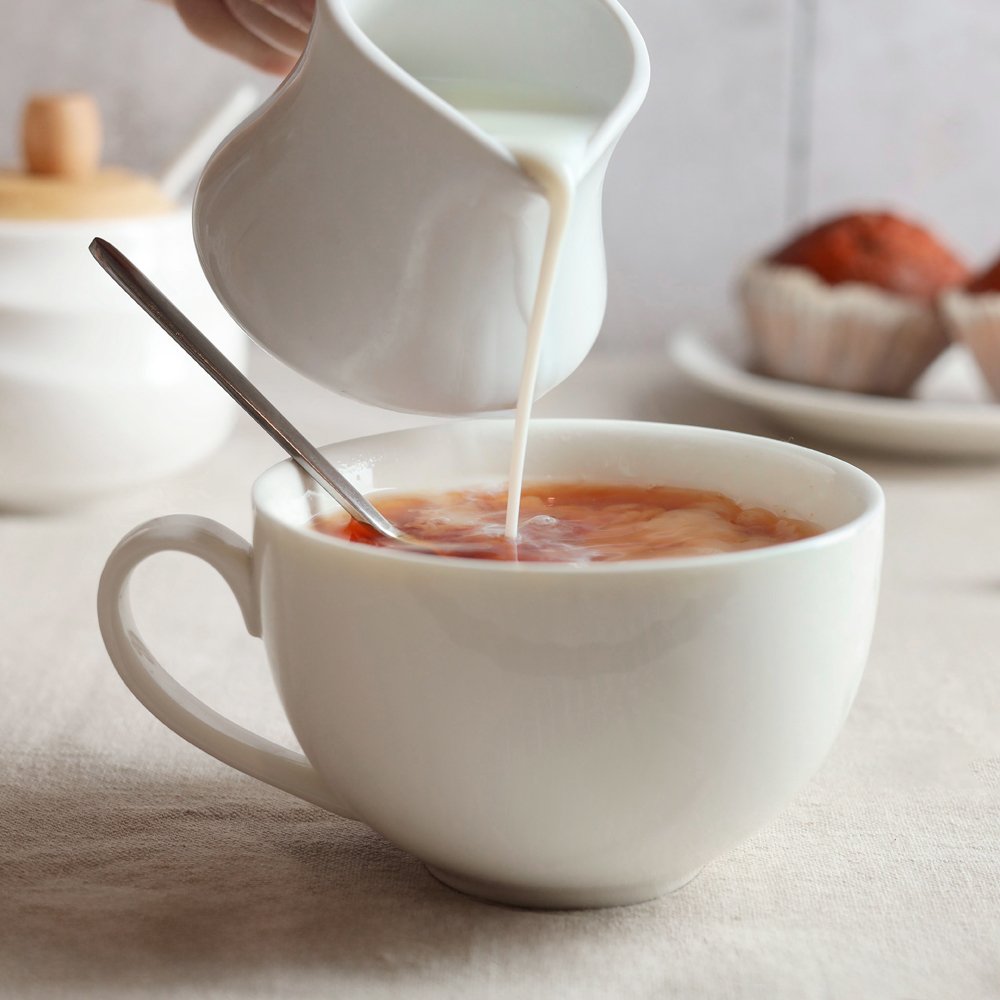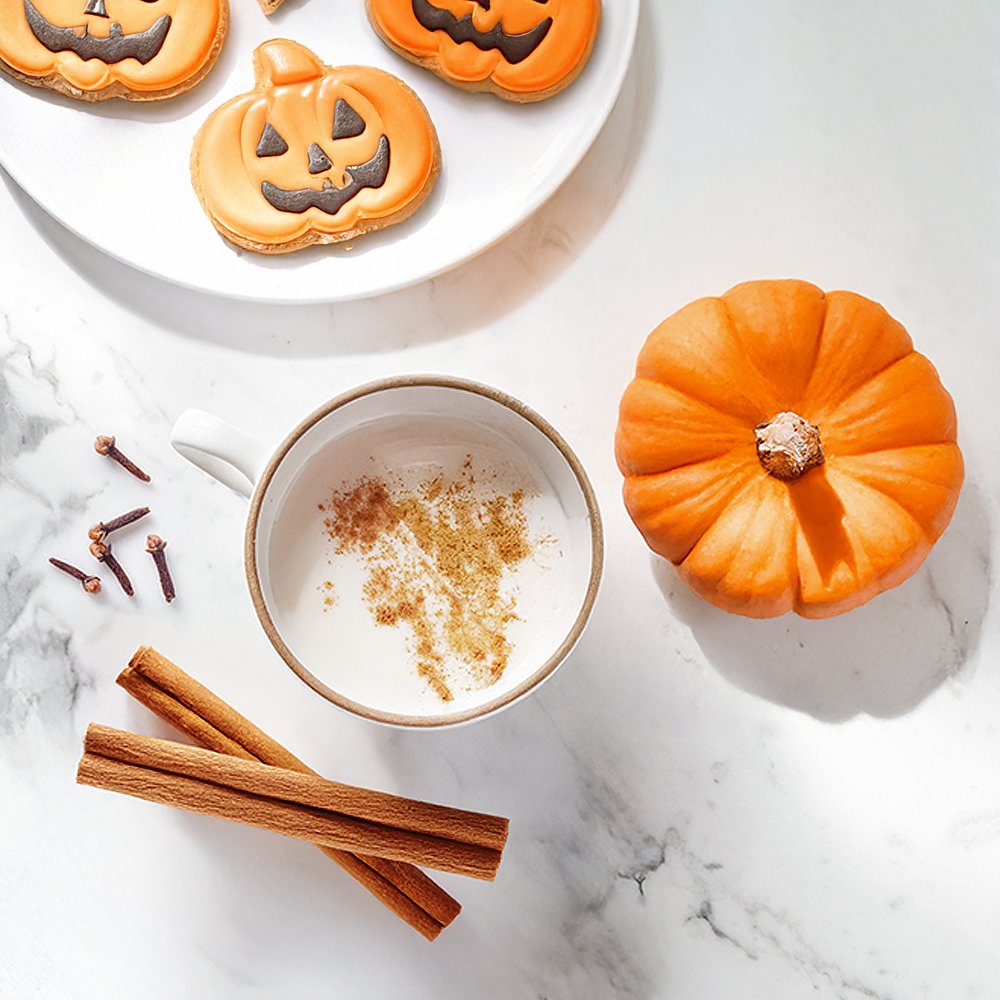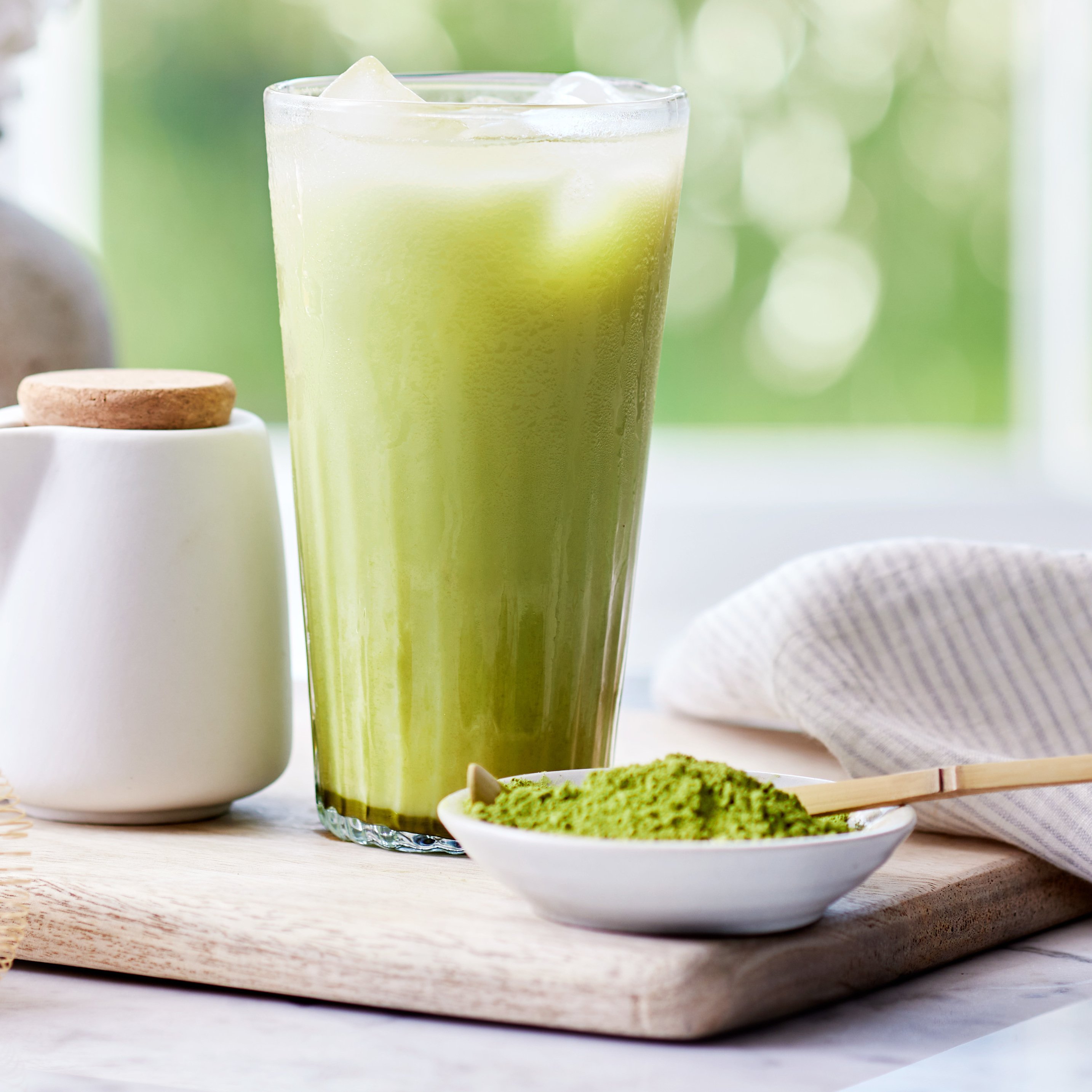As a natural stimulant, caffeine is the tool we often use to place a buffer between the coziness of our beds and the start of a new day. Other times, caffeine is the afternoon pick-me-up needed to tackle our task lists. Sometimes, however, we would rather steer clear of caffeine-induced jitters and restlessness and steep something a bit more soothing instead.
People who are pregnant, have anxiety, have insomnia, or have arrhythmias would benefit from eliminating caffeine intake*. If this sounds like you, look no further than rooibos tea.
Rooibos tea—a caffeine-free herbal infusion—could be just what you need to satisfy your craving without sacrificing sound sleep. Take a closer look at the caffeine content of various teas, including rooibos, green tea, black tea, oolong tea, and white tea. The final sip? A few benefits that the consumption of rooibos tea may have on your overall health.
A Closer Look at Caffeine Content in Rooibos Tea
Is rooibos tea caffeine-free? Yes! Rooibos tea, derived from a plant native to South Africa called the Cape fynbos plant (Aspalathus linearis), would be more properly classified as an herbal infusion. Because the plant from which it is harvested does not naturally contain caffeine, the result is a stimulant-free herbal tea. One of manyrooibos tea benefits is that it can be enjoyed by people that can’t have coffee.
In some cases, however, red and green-leaf rooibos tea can be blended with other varieties of tea that do contain caffeine. So, if you prefer to sip on something free from caffeine, be sure you have chosen tea that is made purely from rooibos leaves. Other popular types of caffeine-free teas include:
- Chamomile tea
- Peppermint tea
- Hibiscus tea
- Ginger tea
- Lemongrass tea
- Ashwagandha tea
If you are interested in steeping yourself a cup of something that is slightly caffeinated, consider choosing from the options below:
- Black tea – Black tea contains the highest amount of caffeine of the bunch but still remains lower than the caffeine content in coffee and espresso drinks. Most black teas have an average caffeine level of 50 milligrams per six-ounce cup.
- Oolong tea – Next up is oolong tea. Boasting a wide variety of sweet, floral, and even grassy flavors, this type of tea is derived from the Camellia sinensis plant, the same one used for making black and green tea. The average cup of oolong tea contains 30-40 milligrams of caffeine per six-ounce serving.
- Green tea – This antioxidant-rich tea is another viable option for tea connoisseurs craving caffeine, albeit a lower amount. In each six-ounce mug, you will find between 20-30 milligrams of caffeine and a much gentler energy boost than espresso.
- White tea – If you are searching for a cup of tea that will give you a slight pick-me-up, look to white tea. This delicately sweet and subtly floral tea, also derived from the Camellia sinensis plant, has a caffeine content of just 15-20 milligrams per six-ounce serving.
Keep in mind that caffeine content can change depending on how a plant is grown or how a cup of tea is steeped. Shade-loving plants may end up with higher overall amounts of caffeine due to the way the sun—or the lack thereof—alters chlorophyll levels. In addition, the longer a tea is steeped, the more likely it will increase the caffeine content in your cup.
Benefits of Rooibos Tea
There is one more thing to discuss before sending you off to tea time: the potential benefits rooibos tea could have on your physical health. Research indicates that rooibos tea:
- May help to support a healthy immune system.* It is packed with antioxidants (polyphenol, in particular) in every cup, which could help you avoid catching whatever is going around this cold and flu season.
- May support bone health.* Rooibos tea has been shown to increase the activity of osteoblasts (bone-forming cells) which could contribute positively to overall bone strength and growth.
- May improve heart health.* Fermented rooibos tea, in particular, has been shown to improve the lipid profile of adults who participated in a scientific study. Regulating cholesterol levels in this way may help to reduce the risk of cardiovascular disease down the line*.
How does rooibos tea taste?
Because it doesn’t have as many tannins, rooibos tea is not as bitter as black tea or green tea. In fact, it has a naturally sweet and nutty flavor. Red rooibos tea has a more robust and earthy flavor with caramel notes, while green rooibos tea is much lighter, herbaceous, and delicate (akin to green tea). The best way to drink rooibos tea is to drink it without any additions, but it makes a fantastic base for lattes, cocktails and mocktails. Wondering how long to steep rooibos tea? We recommend about five to seven minutes for the best flavor.
Get Your Caffeine-Free Fix with The Republic of Tea
Rooibos tea may be caffeine-free but that does not mean it is not packed with goodness in every sip. Whether you are steeping a pot to share with friends or preparing a soothing single-serve to enjoy alongside a good book, The Republic of Tea has you covered with a wide array of delicious options. Here you will find a number of premium teas featuring everything from red and green-leaf rooibos to caffeinated options like oolong and matcha.
Plus, we provide only the highest-quality tea and herbs for our Citizens. Whether from China, India, Sri Lanka, or Japan, and more, all teas have all been ethically sourced from countries whose histories have been steeping for centuries. Take your first sip of The Republic of Tea here.
*The Site cannot and does not contain medical/health advice. The medical/health information is provided for general informational and educational purposes only and is not a substitute for professional advice. Accordingly, before taking any actions based upon such information, we encourage you to consult with the appropriate professionals. We do not provide any kind of medical/health advice. Information and statements about the products on this site have not been evaluated by the Food and Drug Administration and are not intended to diagnose, treat, cure, or prevent any disease.
Sources:
Sci Forschen. Rooibos Tea and Health: A Systematic Review of the Evidence from the Last
Two Decades.
https://www.sciforschenonline.org/journals/nutrition-food/article-data/NFTOA166/NFTOA166.pdf
NCBI. Health Benefits and Chemical Composition of Matcha Green Tea: A Review.
https://www.ncbi.nlm.nih.gov/pmc/articles/PMC7796401/
NIH. Effects of Consumption of Rooibos (Aspalathus linearis) and a Rooibos-Derived Commercial Supplement on Hepatic Tissue Injury by tert-Butyl Hydroperoxide in Wistar Rats.






